afterLoad (456.22KB) (412μs)
afterInitialise (1.27MB) (57.91ms)
afterRoute (870.38KB) (18.23ms)
beforeRenderComponent com_tags (20.52KB) (3.07ms)
afterRenderComponent com_tags (1.81MB) (121ms)
afterDispatch (27.06KB) (1.27ms)
beforeRenderRawModule mod_articles_category (READ MORE...) (372.12KB) (13.24ms)
Before Access::preloadComponents (all components) (56.7KB) (467μs)
After Access::preloadComponents (all components) (103.05KB) (2.77ms)
Before Access::getAssetRules (id:8 name:com_content) (840B) (19μs)
After Access::getAssetRules (id:8 name:com_content) (7.05KB) (39μs)
afterRenderRawModule mod_articles_category (READ MORE...) (6.33KB) (172ms)
beforeRenderRawModule mod_tags_popular (Search) (4.81KB) (29μs)
afterRenderRawModule mod_tags_popular (Search) (1.78KB) (92.81ms)
beforeRenderRawModule mod_custom (Remember to download Heart Healthy Seniors) (816B) (29μs)
afterRenderRawModule mod_custom (Remember to download Heart Healthy Seniors) (4.86KB) (221μs)
beforeRenderRawModule mod_custom (Get additionel and more detailed knowledge ) (752B) (12μs)
afterRenderRawModule mod_custom (Get additionel and more detailed knowledge ) (1.67KB) (24μs)
beforeRenderRawModule mod_custom (BOOST YOUR IMMUNE DEFENSE) (608B) (9μs)
afterRenderRawModule mod_custom (BOOST YOUR IMMUNE DEFENSE) (928B) (20μs)
beforeRenderRawModule mod_custom (Are you taking supplements) (736B) (8μs)
afterRenderRawModule mod_custom (Are you taking supplements) (1.03KB) (17μs)
beforeRenderRawModule mod_custom (Antiaging) (720B) (8μs)
afterRenderRawModule mod_custom (Antiaging) (1.02KB) (15μs)
beforeRenderRawModule mod_custom (Exercise) (720B) (8μs)
afterRenderRawModule mod_custom (Exercise) (1.02KB) (17μs)
beforeRenderRawModule mod_custom (Check this before you buy a Q10 product) (752B) (7μs)
afterRenderRawModule mod_custom (Check this before you buy a Q10 product) (944B) (17μs)
beforeRenderRawModule mod_custom (Chronic fatigue tied Alan to his bed but Q10 capsules saved him:) (245.53KB) (5.03ms)
afterRenderRawModule mod_custom (Chronic fatigue tied Alan to his bed but Q10 capsules saved him:) (960B) (44μs)
beforeRenderModule mod_custom (Chronic fatigue tied Alan to his bed but Q10 capsules saved him:) (768B) (4μs)
afterRenderModule mod_custom (Chronic fatigue tied Alan to his bed but Q10 capsules saved him:) (1.3KB) (56μs)
beforeRenderRawModule mod_custom (Cholesterol-lowering without side effects:) (368B) (12μs)
afterRenderRawModule mod_custom (Cholesterol-lowering without side effects:) (2.19KB) (21μs)
beforeRenderModule mod_custom (Cholesterol-lowering without side effects:) (752B) (2μs)
afterRenderModule mod_custom (Cholesterol-lowering without side effects:) (1.28KB) (27μs)
beforeRenderModule mod_articles_category (READ MORE...) (21.32KB) (322μs)
afterRenderModule mod_articles_category (READ MORE...) (1.25KB) (1.08ms)
beforeRenderModule mod_tags_popular (Search) (5.17KB) (22μs)
afterRenderModule mod_tags_popular (Search) (1.27KB) (27μs)
beforeRenderModule mod_custom (Remember to download Heart Healthy Seniors) (1.17KB) (12μs)
afterRenderModule mod_custom (Remember to download Heart Healthy Seniors) (1.3KB) (20μs)
beforeRenderModule mod_custom (Get additionel and more detailed knowledge ) (368B) (9μs)
afterRenderModule mod_custom (Get additionel and more detailed knowledge ) (1.3KB) (20μs)
beforeRenderModule mod_custom (BOOST YOUR IMMUNE DEFENSE) (224B) (9μs)
afterRenderModule mod_custom (BOOST YOUR IMMUNE DEFENSE) (1.28KB) (18μs)
beforeRenderModule mod_custom (Are you taking supplements) (352B) (8μs)
afterRenderModule mod_custom (Are you taking supplements) (1.28KB) (19μs)
beforeRenderModule mod_custom (Antiaging) (336B) (8μs)
afterRenderModule mod_custom (Antiaging) (1.27KB) (18μs)
beforeRenderModule mod_custom (Exercise) (336B) (7μs)
afterRenderModule mod_custom (Exercise) (1.25KB) (18μs)
beforeRenderModule mod_custom (Check this before you buy a Q10 product) (352B) (8μs)
afterRenderModule mod_custom (Check this before you buy a Q10 product) (1.28KB) (18μs)
beforeRenderRawModule mod_menu (Main menu-US) (20.94KB) (520μs)
afterRenderRawModule mod_menu (Main menu-US) (152.66KB) (1.61ms)
beforeRenderModule mod_menu (Main menu-US) (720B) (4μs)
afterRenderModule mod_menu (Main menu-US) (4.36KB) (48μs)
beforeRenderRawModule mod_languages (Sprogskift) (3.44KB) (16μs)
afterRenderRawModule mod_languages (Sprogskift) (32.33KB) (3.64ms)
beforeRenderModule mod_languages (Sprogskift) (720B) (5μs)
afterRenderModule mod_languages (Sprogskift) (5.31KB) (19μs)
beforeRenderRawModule mod_finder () (6.34KB) (11μs)
afterRenderRawModule mod_finder () (214.16KB) (4.02ms)
beforeRenderModule mod_finder () (704B) (4μs)
afterRenderModule mod_finder () (5.79KB) (32μs)
beforeRenderRawModule mod_custom () (6.62KB) (127μs)
afterRenderRawModule mod_custom () (22.66KB) (3.75ms)
beforeRenderModule mod_custom () (704B) (6μs)
afterRenderModule mod_custom () (1.23KB) (53μs)
beforeRenderRawModule mod_menu (Main menu-US) (5.07KB) (98μs)
afterRenderRawModule mod_menu (Main menu-US) (5.8KB) (581μs)
beforeRenderModule mod_menu (Main menu-US) (720B) (3μs)
afterRenderModule mod_menu (Main menu-US) (1.25KB) (38μs)
beforeRenderRawModule mod_languages (Sprogskift Mobil) (912B) (15μs)
afterRenderRawModule mod_languages (Sprogskift Mobil) (3.89KB) (1.64ms)
beforeRenderModule mod_languages (Sprogskift Mobil) (720B) (5μs)
afterRenderModule mod_languages (Sprogskift Mobil) (1.27KB) (32μs)
beforeRenderRawModule mod_finder () (2.3KB) (10μs)
afterRenderRawModule mod_finder () (6.29KB) (2.76ms)
beforeRenderModule mod_finder () (704B) (5μs)
afterRenderModule mod_finder () (1.23KB) (45μs)
beforeRenderRawModule mod_custom () (8.66KB) (161μs)
afterRenderRawModule mod_custom () (904B) (125μs)
beforeRenderModule mod_custom () (704B) (2μs)
afterRenderModule mod_custom () (2.43KB) (24μs)
beforeRenderRawModule mod_custom () (688B) (72μs)
afterRenderRawModule mod_custom () (896B) (86μs)
beforeRenderModule mod_custom () (704B) (2μs)
afterRenderModule mod_custom () (2.71KB) (31μs)
afterRender (348.21KB) (15.01ms)
| 1 x afterRenderRawModule mod_articles_category (READ MORE...) (6.33KB) (32.66%) | 171.81ms |
| 1 x afterRenderComponent com_tags (1.81MB) (22.97%) | 120.82ms |
| 1 x afterRenderRawModule mod_tags_popular (Search) (1.78KB) (17.64%) | 92.81ms |
| 1 x afterInitialise (1.27MB) (11.01%) | 57.91ms |
| 1 x afterRoute (870.38KB) (3.47%) | 18.23ms |
| 1 x afterRender (348.21KB) (2.85%) | 15.01ms |
| 1 x beforeRenderRawModule mod_articles_category (READ MORE...) (372.12KB) (2.52%) | 13.24ms |
| 1 x beforeRenderRawModule mod_custom (Chronic fatigue tied Alan to his bed but Q10 capsules saved him:) (245.53KB) (0.96%) | 5.03ms |
| 1 x afterRenderRawModule mod_finder () (214.16KB) (0.76%) | 4.02ms |
| 1 x afterRenderRawModule mod_custom () (22.66KB) (0.71%) | 3.75ms |
| 1 x afterRenderRawModule mod_languages (Sprogskift) (32.33KB) (0.69%) | 3.64ms |
| 1 x beforeRenderComponent com_tags (20.52KB) (0.58%) | 3.07ms |
| 1 x After Access::preloadComponents (all components) (103.05KB) (0.53%) | 2.77ms |
| 1 x afterRenderRawModule mod_finder () (6.29KB) (0.52%) | 2.76ms |
| 1 x afterRenderRawModule mod_languages (Sprogskift Mobil) (3.89KB) (0.31%) | 1.64ms |
| 1 x afterRenderRawModule mod_menu (Main menu-US) (152.66KB) (0.31%) | 1.61ms |
| 1 x afterDispatch (27.06KB) (0.24%) | 1.27ms |
| 1 x afterRenderModule mod_articles_category (READ MORE...) (1.25KB) (0.2%) | 1.08ms |
| 1 x afterRenderRawModule mod_menu (Main menu-US) (5.8KB) (0.11%) | 581μs |
| 1 x beforeRenderRawModule mod_menu (Main menu-US) (20.94KB) (0.1%) | 520μs |
| 1 x Before Access::preloadComponents (all components) (56.7KB) (0.09%) | 467μs |
| 1 x afterLoad (456.22KB) (0.08%) | 412μs |
| 1 x beforeRenderModule mod_articles_category (READ MORE...) (21.32KB) (0.06%) | 322μs |
| 1 x afterRenderRawModule mod_custom (Remember to download Heart Healthy Seniors) (4.86KB) (0.04%) | 221μs |
| 1 x beforeRenderRawModule mod_custom () (8.66KB) (0.03%) | 161μs |
| 1 x beforeRenderRawModule mod_custom () (6.62KB) (0.02%) | 127μs |
| 1 x afterRenderRawModule mod_custom () (904B) (0.02%) | 125μs |
| 1 x beforeRenderRawModule mod_menu (Main menu-US) (5.07KB) (0.02%) | 98μs |
| 1 x afterRenderRawModule mod_custom () (896B) (0.02%) | 86μs |
| 1 x beforeRenderRawModule mod_custom () (688B) (0.01%) | 72μs |
| 1 x afterRenderModule mod_custom (Chronic fatigue tied Alan to his bed but Q10 capsules saved him:) (1.3KB) (0.01%) | 56μs |
| 1 x afterRenderModule mod_custom () (1.23KB) (0.01%) | 53μs |
| 1 x afterRenderModule mod_menu (Main menu-US) (4.36KB) (0.01%) | 48μs |
| 1 x afterRenderModule mod_finder () (1.23KB) (0.01%) | 45μs |
| 1 x afterRenderRawModule mod_custom (Chronic fatigue tied Alan to his bed but Q10 capsules saved him:) (960B) (0.01%) | 44μs |
| 1 x After Access::getAssetRules (id:8 name:com_content) (7.05KB) (0.01%) | 39μs |
| 1 x afterRenderModule mod_menu (Main menu-US) (1.25KB) (0.01%) | 38μs |
| 1 x afterRenderModule mod_finder () (5.79KB) (0.01%) | 32μs |
| 1 x afterRenderModule mod_languages (Sprogskift Mobil) (1.27KB) (0.01%) | 32μs |
| 1 x afterRenderModule mod_custom () (2.71KB) (0.01%) | 31μs |
| 1 x beforeRenderRawModule mod_tags_popular (Search) (4.81KB) (0.01%) | 29μs |
| 1 x beforeRenderRawModule mod_custom (Remember to download Heart Healthy Seniors) (816B) (0.01%) | 29μs |
| 1 x afterRenderModule mod_custom (Cholesterol-lowering without side effects:) (1.28KB) (0.01%) | 27μs |
| 1 x afterRenderModule mod_tags_popular (Search) (1.27KB) (0.01%) | 27μs |
| 1 x afterRenderModule mod_custom () (2.43KB) (0%) | 24μs |
| 1 x afterRenderRawModule mod_custom (Get additionel and more detailed knowledge ) (1.67KB) (0%) | 24μs |
| 1 x beforeRenderModule mod_tags_popular (Search) (5.17KB) (0%) | 22μs |
| 1 x afterRenderRawModule mod_custom (Cholesterol-lowering without side effects:) (2.19KB) (0%) | 21μs |
| 1 x afterRenderRawModule mod_custom (BOOST YOUR IMMUNE DEFENSE) (928B) (0%) | 20μs |
| 1 x afterRenderModule mod_custom (Remember to download Heart Healthy Seniors) (1.3KB) (0%) | 20μs |
| 1 x afterRenderModule mod_custom (Get additionel and more detailed knowledge ) (1.3KB) (0%) | 20μs |
| 1 x Before Access::getAssetRules (id:8 name:com_content) (840B) (0%) | 19μs |
| 1 x afterRenderModule mod_languages (Sprogskift) (5.31KB) (0%) | 19μs |
| 1 x afterRenderModule mod_custom (Are you taking supplements) (1.28KB) (0%) | 19μs |
| 1 x afterRenderModule mod_custom (BOOST YOUR IMMUNE DEFENSE) (1.28KB) (0%) | 18μs |
| 1 x afterRenderModule mod_custom (Antiaging) (1.27KB) (0%) | 18μs |
| 1 x afterRenderModule mod_custom (Exercise) (1.25KB) (0%) | 18μs |
| 1 x afterRenderModule mod_custom (Check this before you buy a Q10 product) (1.28KB) (0%) | 18μs |
| 1 x afterRenderRawModule mod_custom (Are you taking supplements) (1.03KB) (0%) | 17μs |
| 1 x afterRenderRawModule mod_custom (Exercise) (1.02KB) (0%) | 17μs |
| 1 x afterRenderRawModule mod_custom (Check this before you buy a Q10 product) (944B) (0%) | 17μs |
| 1 x beforeRenderRawModule mod_languages (Sprogskift) (3.44KB) (0%) | 16μs |
| 1 x afterRenderRawModule mod_custom (Antiaging) (1.02KB) (0%) | 15μs |
| 1 x beforeRenderRawModule mod_languages (Sprogskift Mobil) (912B) (0%) | 15μs |
| 1 x beforeRenderRawModule mod_custom (Get additionel and more detailed knowledge ) (752B) (0%) | 12μs |
| 1 x beforeRenderRawModule mod_custom (Cholesterol-lowering without side effects:) (368B) (0%) | 12μs |
| 1 x beforeRenderModule mod_custom (Remember to download Heart Healthy Seniors) (1.17KB) (0%) | 12μs |
| 1 x beforeRenderRawModule mod_finder () (6.34KB) (0%) | 11μs |
| 3 x beforeRenderModule mod_custom () (704B) (0%) | 10μs |
| 1 x beforeRenderRawModule mod_finder () (2.3KB) (0%) | 10μs |
| 1 x beforeRenderRawModule mod_custom (BOOST YOUR IMMUNE DEFENSE) (608B) (0%) | 9μs |
| 1 x beforeRenderModule mod_custom (Get additionel and more detailed knowledge ) (368B) (0%) | 9μs |
| 2 x beforeRenderModule mod_finder () (704B) (0%) | 9μs |
| 1 x beforeRenderModule mod_custom (BOOST YOUR IMMUNE DEFENSE) (224B) (0%) | 9μs |
| 1 x beforeRenderRawModule mod_custom (Are you taking supplements) (736B) (0%) | 8μs |
| 1 x beforeRenderRawModule mod_custom (Exercise) (720B) (0%) | 8μs |
| 1 x beforeRenderModule mod_custom (Are you taking supplements) (352B) (0%) | 8μs |
| 1 x beforeRenderModule mod_custom (Antiaging) (336B) (0%) | 8μs |
| 1 x beforeRenderModule mod_custom (Check this before you buy a Q10 product) (352B) (0%) | 8μs |
| 1 x beforeRenderRawModule mod_custom (Antiaging) (720B) (0%) | 8μs |
| 1 x beforeRenderRawModule mod_custom (Check this before you buy a Q10 product) (752B) (0%) | 7μs |
| 1 x beforeRenderModule mod_custom (Exercise) (336B) (0%) | 7μs |
| 2 x beforeRenderModule mod_menu (Main menu-US) (720B) (0%) | 7μs |
| 1 x beforeRenderModule mod_languages (Sprogskift) (720B) (0%) | 5μs |
| 1 x beforeRenderModule mod_languages (Sprogskift Mobil) (720B) (0%) | 5μs |
| 1 x beforeRenderModule mod_custom (Chronic fatigue tied Alan to his bed but Q10 capsules saved him:) (768B) (0%) | 4μs |
| 1 x beforeRenderModule mod_custom (Cholesterol-lowering without side effects:) (752B) (0%) | 2μs |
 Although humans generally live longer now, an increasing number of people suffer from chronic diseases. Our medicine consumption is steadily increasing, yet the underlying causes are not addressed, and it is often down to a lack of essential nutrients. Just think of magnesium, a nutrient that is involved in more than 300 different enzyme processes that are important for our nervous system, digestion, muscle function, heart function, blood pressure, bone health, pregnancy, and utilization of vitamin D. This also means that lack of magnesium may be involved in the development of asthma, stress, insomnia, constipation, migraines, neurological diseases, cardiovascular diseases, breast cancer, premature deliveries etc. A recent review article published in Scientifica looks at the importance of magnesium in clinical therapy, and it is vital that magnesium supplements are in a form that the body can absorb and utilize.
Although humans generally live longer now, an increasing number of people suffer from chronic diseases. Our medicine consumption is steadily increasing, yet the underlying causes are not addressed, and it is often down to a lack of essential nutrients. Just think of magnesium, a nutrient that is involved in more than 300 different enzyme processes that are important for our nervous system, digestion, muscle function, heart function, blood pressure, bone health, pregnancy, and utilization of vitamin D. This also means that lack of magnesium may be involved in the development of asthma, stress, insomnia, constipation, migraines, neurological diseases, cardiovascular diseases, breast cancer, premature deliveries etc. A recent review article published in Scientifica looks at the importance of magnesium in clinical therapy, and it is vital that magnesium supplements are in a form that the body can absorb and utilize.







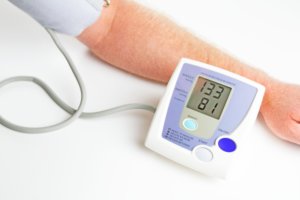 Elevated blood pressure causes more premature deaths worldwide than any other factor. Blood pressure is regulated by a number of things such as diet and lifestyle. Science has also discovered that low blood levels of zinc contribute to high blood pressure because it impairs the ability of the kidneys to regulate sodium levels. This was demonstrated recently in a study that is published in American Journal of Physiology – Renal Physiology. Clinical zinc deficiencies are especially common among type 2 diabetics and people with kidney ailments. Subclinical zinc deficiency is also quite common. Even if you get plenty of zinc from your diet, the risk of poor zinc absorption increases with age. Vegetarian and vegan diets, overconsumption of calcium, drinking too much alcohol, using birth control pills and several types of medicine, plus certain other factors can also increase the risk of a zinc deficiency.
Elevated blood pressure causes more premature deaths worldwide than any other factor. Blood pressure is regulated by a number of things such as diet and lifestyle. Science has also discovered that low blood levels of zinc contribute to high blood pressure because it impairs the ability of the kidneys to regulate sodium levels. This was demonstrated recently in a study that is published in American Journal of Physiology – Renal Physiology. Clinical zinc deficiencies are especially common among type 2 diabetics and people with kidney ailments. Subclinical zinc deficiency is also quite common. Even if you get plenty of zinc from your diet, the risk of poor zinc absorption increases with age. Vegetarian and vegan diets, overconsumption of calcium, drinking too much alcohol, using birth control pills and several types of medicine, plus certain other factors can also increase the risk of a zinc deficiency. Birth control pills are commonly used as a source of prevention. Most women seem to tolerate the pills rather well, but there are known side effects such as headaches, mood swings, and a slightly increased risk of blood clots and breast cancer. The different side effects are a result of the birth control pills and their disturbing impact on various enzyme processes, which depend on most B vitamins, vitamin C, magnesium, selenium, and zinc. Vitamin C, zinc, and selenium also serve as effective antioxidants that protect our cells and cardiovascular system against oxidative stress. It is therefore essential to get plenty of these nutrients in order to lower the risk of side effects.
Birth control pills are commonly used as a source of prevention. Most women seem to tolerate the pills rather well, but there are known side effects such as headaches, mood swings, and a slightly increased risk of blood clots and breast cancer. The different side effects are a result of the birth control pills and their disturbing impact on various enzyme processes, which depend on most B vitamins, vitamin C, magnesium, selenium, and zinc. Vitamin C, zinc, and selenium also serve as effective antioxidants that protect our cells and cardiovascular system against oxidative stress. It is therefore essential to get plenty of these nutrients in order to lower the risk of side effects. Yes, according to a new study published in Free Radical Biology & Medicine, lack of selenium lowers the kidneys’ sodium excretion via different mechanisms, and that leads to elevated blood pressure. The study results are highly relevant because hypertension and subsequent premature death is a growing global problem. Selenium deficiency is also a widespread problem. One billion people worldwide are believed to be lack this essential nutrient, primarily because of the selenium-depleted agricultural soil in large parts of China, Europe, and other places.
Yes, according to a new study published in Free Radical Biology & Medicine, lack of selenium lowers the kidneys’ sodium excretion via different mechanisms, and that leads to elevated blood pressure. The study results are highly relevant because hypertension and subsequent premature death is a growing global problem. Selenium deficiency is also a widespread problem. One billion people worldwide are believed to be lack this essential nutrient, primarily because of the selenium-depleted agricultural soil in large parts of China, Europe, and other places. Diabetes is spreading like a bushfire across the globe, but even if governments, doctors, and health authorities have tried desperately to bend the curve, they have not succeeded so far. On the contrary. Today, diabetes is controlled with help from different medical drugs that do not address the underlying cause and actually affect or organ systems. Because of this, diabetics often have impaired quality of life and shorter lifespans than healthy individuals. What is more, diabetics have widespread vitamin B12 and vitamin D deficiencies, which are associated with diabetic neuropathy, which is a serious complication. Cholesterol-lowering drugs (statins) are also linked to reduced levels of Q10, a compound that is necessary for energy turnover, the heart, and the cardiovascular system.
Diabetes is spreading like a bushfire across the globe, but even if governments, doctors, and health authorities have tried desperately to bend the curve, they have not succeeded so far. On the contrary. Today, diabetes is controlled with help from different medical drugs that do not address the underlying cause and actually affect or organ systems. Because of this, diabetics often have impaired quality of life and shorter lifespans than healthy individuals. What is more, diabetics have widespread vitamin B12 and vitamin D deficiencies, which are associated with diabetic neuropathy, which is a serious complication. Cholesterol-lowering drugs (statins) are also linked to reduced levels of Q10, a compound that is necessary for energy turnover, the heart, and the cardiovascular system.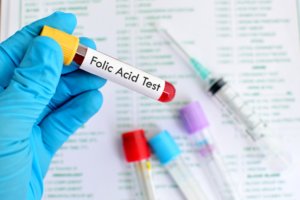
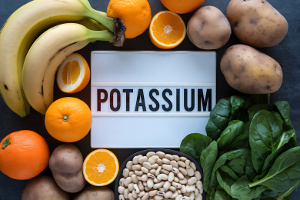 High blood pressure is the primary cause of cardiovascular diseases, strokes, and early death. There has primarily been focus on limiting salt (sodium) intake, but now it appears that the balance between sodium and potassium is even more important. According to a study published in the American Journal of Physiology-Renal Physiology, consuming bananas, avocados, broccoli, nuts, and other potassium-rich foods can be beneficial in preventing and treating high blood pressure.
High blood pressure is the primary cause of cardiovascular diseases, strokes, and early death. There has primarily been focus on limiting salt (sodium) intake, but now it appears that the balance between sodium and potassium is even more important. According to a study published in the American Journal of Physiology-Renal Physiology, consuming bananas, avocados, broccoli, nuts, and other potassium-rich foods can be beneficial in preventing and treating high blood pressure. Folic acid supplements are typically recommended to people with anemia and to expecting mothers. However, folic acid supplements can also be important for the cardiovascular system, the brain and memory, and for preventing stroke. The widespread lack of this nutrient is a result of poor diets, pregnancy, ageing, alcohol abuse, and the consumption of birth control pills and various types of medicine.
Folic acid supplements are typically recommended to people with anemia and to expecting mothers. However, folic acid supplements can also be important for the cardiovascular system, the brain and memory, and for preventing stroke. The widespread lack of this nutrient is a result of poor diets, pregnancy, ageing, alcohol abuse, and the consumption of birth control pills and various types of medicine.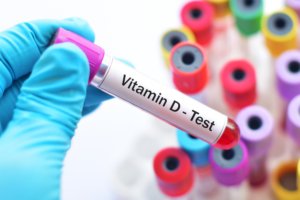 Expecting mothers should pay careful attention to getting enough vitamin D all year round, especially because vitamin D deficiencies are so commonplace, to begin with. Lack of vitamin D at birth and the first years of life is associated with an increased risk of infant hypertension, and the problem can even continue to adulthood. This was shown in a study that is published in the science journal Hypertension. The researchers advise pregnant women to have their vitamin D levels measured, and they even recommend vitamin D supplements for pregnant women and children as a way of preventing elevated blood pressure later in life.
Expecting mothers should pay careful attention to getting enough vitamin D all year round, especially because vitamin D deficiencies are so commonplace, to begin with. Lack of vitamin D at birth and the first years of life is associated with an increased risk of infant hypertension, and the problem can even continue to adulthood. This was shown in a study that is published in the science journal Hypertension. The researchers advise pregnant women to have their vitamin D levels measured, and they even recommend vitamin D supplements for pregnant women and children as a way of preventing elevated blood pressure later in life. Potassium and sodium (which is found in regular table salt) work together in an elaborate and essential way in the body. Unfortunately, we get far too much concealed salt from industrially processed foods, and our intake of potassium from vegetables is often too low. This increases our risk of elevated blood pressure and stroke. Nonetheless, people on low-sodium diets have a lower risk of suffering a stroke and dying, according to a large Chinese study. The scientists assume that sodium may represent an inexpensive and simple way to improve public health. How important is it really to have the proper balance between sodium and potassium?
Potassium and sodium (which is found in regular table salt) work together in an elaborate and essential way in the body. Unfortunately, we get far too much concealed salt from industrially processed foods, and our intake of potassium from vegetables is often too low. This increases our risk of elevated blood pressure and stroke. Nonetheless, people on low-sodium diets have a lower risk of suffering a stroke and dying, according to a large Chinese study. The scientists assume that sodium may represent an inexpensive and simple way to improve public health. How important is it really to have the proper balance between sodium and potassium? Elevated blood pressure is the main cause of stroke, cardiovascular disease and early death. For quite some time, there has been evidence that intake of fruit and vegetables affects the risk of developing elevated blood pressure. Science has not yet studied if this is due to the antioxidants in our diets, but a team of French scientists has looked closer at this. The researchers found that the total amount of antioxidants in our diet may lower by 15 percent the risk of elevated blood pressure. The potassium in fruit and vegetables also play a determining role in blood pressure management, and the same goes for Q10 – provided you take quality supplements with proper absorption.
Elevated blood pressure is the main cause of stroke, cardiovascular disease and early death. For quite some time, there has been evidence that intake of fruit and vegetables affects the risk of developing elevated blood pressure. Science has not yet studied if this is due to the antioxidants in our diets, but a team of French scientists has looked closer at this. The researchers found that the total amount of antioxidants in our diet may lower by 15 percent the risk of elevated blood pressure. The potassium in fruit and vegetables also play a determining role in blood pressure management, and the same goes for Q10 – provided you take quality supplements with proper absorption.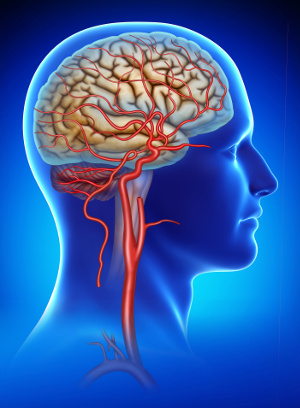
 Many older people sleep poorly and tend to have elevated blood pressure. Luckily, supplementation with melatonin seems to correct both problems. Melatonin can even improve sleep in people who take beta-blockers for high blood pressure. So what is melatonin, and why is this substance particularly useful for older people?
Many older people sleep poorly and tend to have elevated blood pressure. Luckily, supplementation with melatonin seems to correct both problems. Melatonin can even improve sleep in people who take beta-blockers for high blood pressure. So what is melatonin, and why is this substance particularly useful for older people? Elevated blood pressure, a problem many people have without knowing it, is the major cause of early death. Our lifestyle and what we eat play an enormous role and according to a new meta-analysis that is published in Journal of the American Heart Association, daily intake of three grams of omega-3 fatty acids can reduce your blood pressure. It is possible to get this amount of omega-3 by consuming a serving of oily fish like herring or taking a high-quality fish oil supplement.
Elevated blood pressure, a problem many people have without knowing it, is the major cause of early death. Our lifestyle and what we eat play an enormous role and according to a new meta-analysis that is published in Journal of the American Heart Association, daily intake of three grams of omega-3 fatty acids can reduce your blood pressure. It is possible to get this amount of omega-3 by consuming a serving of oily fish like herring or taking a high-quality fish oil supplement.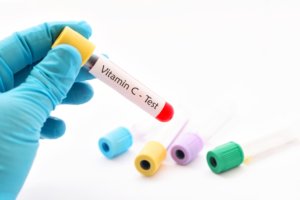

 Magnesium supports hundreds of different enzyme processes that are involved in energy turnover, sugar metabolism, nerves, and several other basic functions. Unfortunately, magnesium deficiency is rather common and more and more studies suggest that this may be related to a host of metabolic disturbances such as overweight, insulin resistance, type 2 diabetes, hypertension, elevated cholesterol, and chronic low-grade inflammation that is seen in connection with most chronic diseases. On the other and, it appears that high intake of magnesium from the diet or from supplements may help. In a new review article that is published in Nutrients, the authors look at magnesium deficiency and its role in the development of metabolic disorders. They also look at factors such as nutrient-depleted farmland, unhealthy diets, poor nutrient uptake, insulin resistance, the use of medicine, alcohol abuse, and stress that can potentially result in a magnesium deficiency.
Magnesium supports hundreds of different enzyme processes that are involved in energy turnover, sugar metabolism, nerves, and several other basic functions. Unfortunately, magnesium deficiency is rather common and more and more studies suggest that this may be related to a host of metabolic disturbances such as overweight, insulin resistance, type 2 diabetes, hypertension, elevated cholesterol, and chronic low-grade inflammation that is seen in connection with most chronic diseases. On the other and, it appears that high intake of magnesium from the diet or from supplements may help. In a new review article that is published in Nutrients, the authors look at magnesium deficiency and its role in the development of metabolic disorders. They also look at factors such as nutrient-depleted farmland, unhealthy diets, poor nutrient uptake, insulin resistance, the use of medicine, alcohol abuse, and stress that can potentially result in a magnesium deficiency.

 The number of Danes suffering from one or several chronic diseases is a lot higher than previously thought, according to a group of scientists behind a new study from Danish Center for Healthcare Improvement at Aalborg University. Diseases such as hypertension, elevated cholesterol, depression, bronchitis, asthma, type 2 diabetes, rheumatism, and osteoporosis are among the most widespread ailments. Although there may be a reason of underlying factors, diet and lack of essential nutrients often play a key role. This is something that we have written about over the years on this website, and we have tried to gather some facts from various articles. Simple diet changes and the use of relevant nutritional supplements may play a key role in the treatment of these chronic ailments that come at a huge price, both to the individual sufferer and to society.
The number of Danes suffering from one or several chronic diseases is a lot higher than previously thought, according to a group of scientists behind a new study from Danish Center for Healthcare Improvement at Aalborg University. Diseases such as hypertension, elevated cholesterol, depression, bronchitis, asthma, type 2 diabetes, rheumatism, and osteoporosis are among the most widespread ailments. Although there may be a reason of underlying factors, diet and lack of essential nutrients often play a key role. This is something that we have written about over the years on this website, and we have tried to gather some facts from various articles. Simple diet changes and the use of relevant nutritional supplements may play a key role in the treatment of these chronic ailments that come at a huge price, both to the individual sufferer and to society.
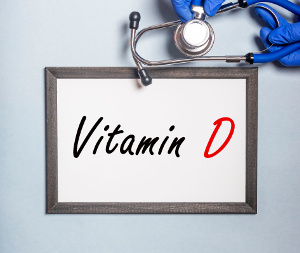 Vitamin D plays a major role in our health. The main focus, however, is on vitamin D’s importance for bones, while many health professionals are totally unaware of the nutrient’s other essential functions. According to a review article published in Nutrients, half the global population has low vitamin D levels in the blood, which increases the risk of cardiovascular disease, hypertension, cancer, type 2 diabetes, Alzheimer’s disease, respiratory infections like COVID-19, and early death. The authors also mention that vitamin D science is often inadequate or misleading because studies focus on supplementation rather than looking at blood levels of 25(OH)D. Consequently, trials are often made with far too small vitamin D doses or with too a short a trial period. In either case, blood levels of vitamin D fail to reach their optimum. What is more, levels of 25(OH)D in the blood should ideally be above 75 nmol/L in order to protect against cardiovascular disease, cancer, and early death. Because this threshold level is higher than the official threshold levels, the scientists recommend high-dosed vitamin D levels as a way to reach an optimal nutrient status.
Vitamin D plays a major role in our health. The main focus, however, is on vitamin D’s importance for bones, while many health professionals are totally unaware of the nutrient’s other essential functions. According to a review article published in Nutrients, half the global population has low vitamin D levels in the blood, which increases the risk of cardiovascular disease, hypertension, cancer, type 2 diabetes, Alzheimer’s disease, respiratory infections like COVID-19, and early death. The authors also mention that vitamin D science is often inadequate or misleading because studies focus on supplementation rather than looking at blood levels of 25(OH)D. Consequently, trials are often made with far too small vitamin D doses or with too a short a trial period. In either case, blood levels of vitamin D fail to reach their optimum. What is more, levels of 25(OH)D in the blood should ideally be above 75 nmol/L in order to protect against cardiovascular disease, cancer, and early death. Because this threshold level is higher than the official threshold levels, the scientists recommend high-dosed vitamin D levels as a way to reach an optimal nutrient status. Our ability to absorb zinc is reduced with age, and many older people lack zinc, even though there is plenty of zinc in the diet they eat. The trace element is involved in over 1,000 enzyme processes and is also an important antioxidant that protects our cells. Even minor zinc deficiencies can speed up ageing processes and contribute to skin and hair problems, infections such as bladder infections, chronic inflammation, elevated blood pressure, cancer, and other diseases. People with unhealthy diets, vegetarians, vegans, and older people are at particularly vulnerable. Certain types of medicine that many seniors take can also increase the risk of a zinc deficiency.
Our ability to absorb zinc is reduced with age, and many older people lack zinc, even though there is plenty of zinc in the diet they eat. The trace element is involved in over 1,000 enzyme processes and is also an important antioxidant that protects our cells. Even minor zinc deficiencies can speed up ageing processes and contribute to skin and hair problems, infections such as bladder infections, chronic inflammation, elevated blood pressure, cancer, and other diseases. People with unhealthy diets, vegetarians, vegans, and older people are at particularly vulnerable. Certain types of medicine that many seniors take can also increase the risk of a zinc deficiency. "After about one week of taking the Q10 supplement I could feel a huge difference," says 23-year old Alan Piccini, who has been suffering from extreme fatigue and muscle aches ever since he was a child.
"After about one week of taking the Q10 supplement I could feel a huge difference," says 23-year old Alan Piccini, who has been suffering from extreme fatigue and muscle aches ever since he was a child. “Taking capsules with co-enzyme Q10 has freed me of the severe side effects of my cholesterol lowering medicine,” Mrs Franken explains.
“Taking capsules with co-enzyme Q10 has freed me of the severe side effects of my cholesterol lowering medicine,” Mrs Franken explains.